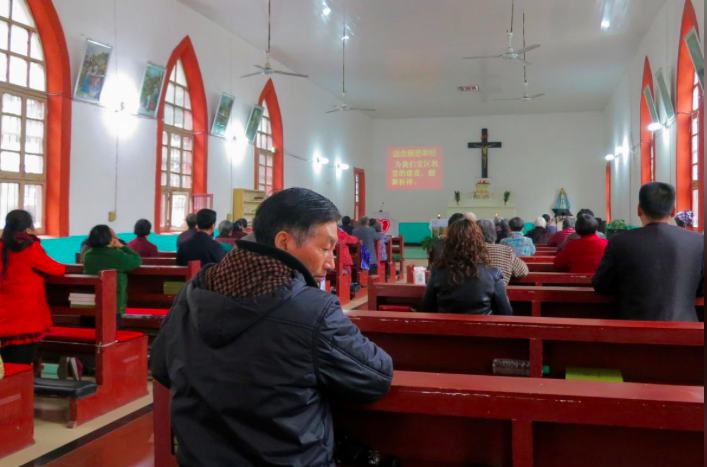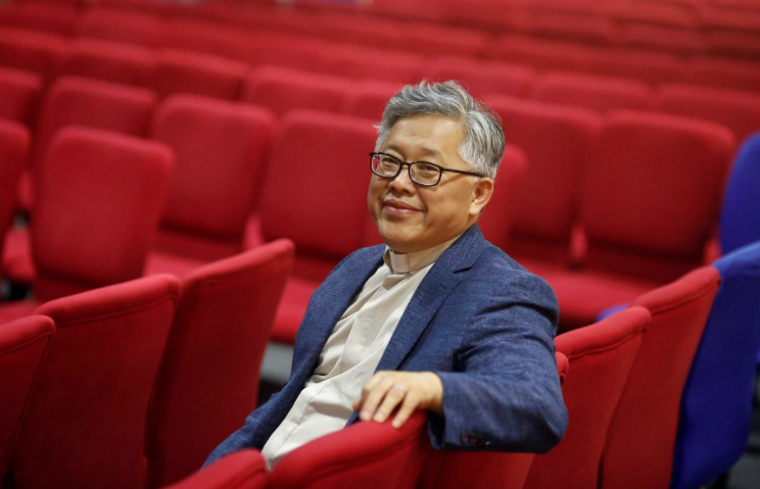Has the Catholic Church given away too much to China?
China and the Vatican have concluded a landmark agreement aimed at resolving a long-running dispute over who has the ultimate say in appointing the country's bishops. While the official Catholic Patriotic Association has welcomed the deal – which will see some bishops appointed without Vatican approval retrospectively recognised, and a promise that the Vatican will have the final say in future appointments – it is not without its critics.

Some observers believe it gives far too much away to Beijing, which has recently shown itself to be firmly in opposition to religion and will not tolerate an alternative source of authority to the Communist party. The Vatican has been accused of 'selling out' and betraying fundamental principles in exchange for diplomatic advantages.
China Aid, which monitors religious freedom in China, was highly critical. Its founder and president Bob Fu told Christian Today: 'While we understand the eagerness of Vatican for searching more legitimacy in the eye of the Chinese Communist Party, this reported deal is nothing but a betrayal of both the millions of suffering persecuted Christians in China and the global Catholic Church.
'This could be a repeat of the 1940s Hitler's Germany, when the German state church consented to the persecution and slaughtered millions of Jews. Ironically, how can the Vatican respond with a good clear conscience for this appeasement deal while the CCP just launched a secret war vowing the wipe out of underground Catholics and Protestants?'
Fu was commenting after China stepped up its actions against house churches, closing the 1,500-member Zion Church in Beijing after it refused to install surveillance cameras in its auditorium. Nearly 350 Chinese church leaders have signed a protest letter affirming religious freedom in the light of the February 2018 'Regulations on Religious Affairs' which dramatically tightened state control of religion.

Other observers have also warned of the dangers of the Vatican deal – whose details have not been published – notably long-time critic Cardinal Joseph Zen, the former Archbishop of Hong Kong, who described it as 'an incredible betrayal', saying: 'They're giving the flock into the mouths of the wolves.' He added: 'The consequences will be tragic and long lasting, not only for the Church in China but for the whole Church because it damages the credibility. Maybe that's why they might keep the agreement secret.'
The agreement was vigorously defended by the Vatican secretary of state, Cardinal Parolin, who said in a statement: 'And today, for the first time all the Bishops in China are in communion with the Bishop of Rome, with the Successor of Peter. And Pope Francis, like his immediate Predecessors, looks with particular care to the Chinese People. What is required now is unity, is trust and a new impetus; to have good Pastors, recognized by the Successor of Peter – by the Pope – and by the legitimate civil Authorities. And we believe – we hope, we hope – that the Agreement will be an instrument just for these objectives, for these aims, with the cooperation of all.'
Whatever the disagreements between observers, the undeniable truth is that the situation is diplomatically extremely complicated – not least by the fact that the Vatican has diplomatic relations with Taiwan, which China regards as its sovereign territory. Though the details of the agreement have not been published, they evidently do not include the condition that these relations are severed.
The Vatican's dilemma is one that it has faced often before. How far should it go in working with the grain of a particular regime in order to preserve the lives and freedoms of its members, and how far should it resist in order to preserve non-negotiables – such as its right to appoint bishops, the guardians of the faith? No pope could ever give way on that, but the question is whether that right has been adequately safeguarded from undue government influence. Without knowing the terms of the agreement, we do not know.
According to Asia News' Bernardo Cervellera, however, there is uncertainty among Chinese Catholics about aspects of the deal, notably about the lifting of the excommunication of seven bishops ordained without a papal mandate – 'some of these reconciled bishops are known to have lovers and children and to be "collaborators", he says. He also points out the absence from any public statement about the plight of China's persecuted Christians – a sharp contrast with Pope Francis' acknowledgement of the suffering of Christians in the Baltic States under communism. As Cervellera says: 'But if in the agreement, although provisional, we can see even a glimmer of positivity, then the Lithuanian celebrations are a sign of hope: communism, "the delirium of omnipotence of those who claimed to control everything", did not win. And this also gives us hope for China.'
While the Vatican-China deal is open to criticism, Pope Francis himself has said: 'Dialogue is a risk, but I prefer risk rather than the certain defeat that comes with not holding dialogue. As for the timing, some people say its Chinese time. I say it is God's time. Let's move forward serenely.'











